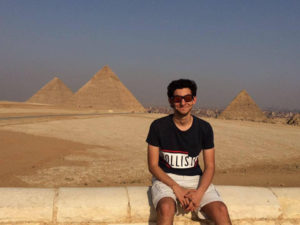Leaders Face Challenges of Democracy
Several democratic countries have faced unsavory decisions in recent years, the most recent being Brexit and the rejection of the FARC peace deal.The resulting atmosphere of resentment challenges democracy, pushing some millennials to give up on the political system. States should consider taking unorthodox and undemocratic measures during controversial situations in which democracy seems to “work for the worse” and at times when democracy is at risk of collapse. Misinformed decisions reached through democratic decision-making processes are often responsible for putting future generations at risk. Egyptians experienced this in 2012 when a member of the Muslim Brotherhood, Mohamed Morsi, was elected president but was quickly overthrown by the military after mass demonstrations. After only a few months in power, Morsi temporarily extended his constitutional powers and gradually appointed Muslim Brotherhood officials to high-level offices within state institutions. In addition, several charges were leveled against Morsi for alleged espionage and the leaking of secret state documents to foreign countries.
Moreover, sectarian violence and terrorism spread radically due to Morsi’s open-door policy towards Hamas militants. By the end of Morsi’s first year in power, the country was divided and on the brink of civil war. The call for change became irrefutable when millions came out on the streets on June 30, 2013 to protest Morsi’s rule.In response, the military overthrew Morsi. In this context, the intrusion of the military in political affairs proved to be essential for the survival of democracy.

Portugal had a similar historical experience in April 1974, when a group of young army officers revolted and spurred a popular uprising when jubilant masses joined the troops. In less than 24 hours, the Portuguese army took down the 36-year-long dictatorship of Antonio Oliveira Salazar and set out to decolonize the countries of Angola and Mozambique, as well as several other territories. Exactly one year after the coup, free elections took place with a turnout of 91 percent, the country’s highest rate in history. The aftermath of the 1974 Portuguese coup proved to be history’s greatest example of the role of undemocratic action in saving or reinstalling democracy.
The practice of undemocratic action for the sake of democracy has also been implemented on an institutional level. The founders of the United States, for example, created the electoral college due to concern that a direct democracy would allow certain groups and factions to undermine the rights of other citizens.
Furthermore, statistical evidence shows that coups or coerced changes can result in the establishment of democracies. From 1950 to 1989, 14 percent of successful coups against dictatorships led to democracy within two years, while 40 percent did so from 1990 to 2015. Such data indicates a clear upward trend in the success rate of coups against dictatorships. Undemocratic action is more successful when a democratic political system has previously existed.
Moreover, some political theorists have justified undemocratic action under certain circumstances. Dr. Matthew Kroenig, Associate Professor at Georgetown University, notes that early political theorists like Machiavelli argued that the means justify the ends. He believes that “the best form of government is the republic, but if the state starts to decay in any way, an arising strong man would be a good solution.” Dr. Kroenig applied this theory to the Turkish army, which has “always been seen as the guardian of democracy and the secular state”.
Today, countries like the United Kingdom and Colombia face the consequences of a misinformed majority. These countries should look to Egypt and other historical examples of the ways in which unorthodox measures can preserve democracy. However, it is important to bear in mind the instances in which undemocratic action have not led to the salvation of democracy. The responsibility for preserving a well-run democratic state rests with the courage of politicians and the will of the people; undemocratic action taken to save a democracy offers one option.
Wasil is an  Egyptian freshman in the School of Foreign Service studying International Politics. He has lived in 9 countries, speaks 5 languages and is the founder of a community service NGO called Clean & Green Egypt. In addition, Wasil writes for his own media outlet named Nile Scope.
Egyptian freshman in the School of Foreign Service studying International Politics. He has lived in 9 countries, speaks 5 languages and is the founder of a community service NGO called Clean & Green Egypt. In addition, Wasil writes for his own media outlet named Nile Scope.
